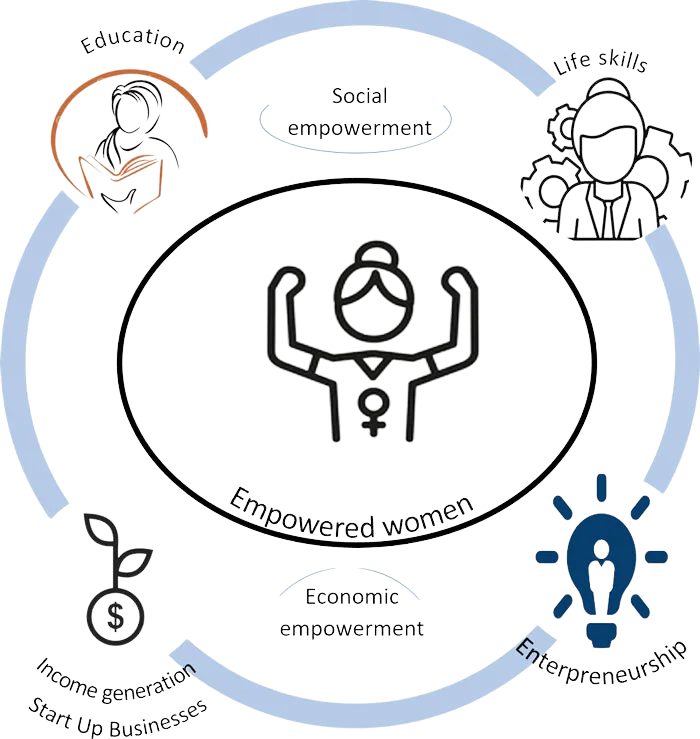
We empower women both socially and economically by providing them access to education, life skills and income generation opportunities.
Through our program we hope to build a secure and sustainable future for women by helping them become financially independent, more healthy, equal participants in household decision-making and more knowledgeable of their rights.
We have developed and implemented multiple projects under our women empowerment program and based it on the Sustainable Development Goals (SDGs) 2030 – particularly SDG 5 “Achieve gender equality and empower all women and girls”.
Just as the SDG 5 goal states, VIN also has made it it’s mission to eliminate gender disparity in all levels of education, wage discrimination at similar work, physical and sexual violence, and all harmful practices, and raising the presence of women in the national parliament and public service decision-making positions.

Many times, women find themselves weak and violated by the culture and society. They tend to lose their value and identity. Hence, VIN focuses on the overall development of women aged 20-59 in marginalized communities. Numerous life skill development courses are given, such as leadership development, computer courses, stress management, time management etc. Micro-credit programs have been considered to put women in better financial standing. We have been providing entrepreneurship trainings focusing on both agricultural and non-agricultural business. Such initiatives help back warded women to realize their potential and work towards a better life.
Nepali women are born into a patriarchal society that consider Women’s Rights secondary to those of men. Married early, with little or no education, no land rights or independent income, women are a voiceless section of society. They are highly dependent on men for their welfare. They bear the continued weight of socio-cultural discrimination and violence against them.
VIN aims to empower women socially and economically through education, life skills and income generation opportunities. By 2030, VIN aims to benefit at least 80% of the total women in the marginalized communities of the target areas (Kavresthali, Nuwakot and Okhaldhunga). Women Empowerment Program focuses its projects under three particularly important SDGs:
Goal 1: No Poverty
Goal 4: Quality Education
Goal 5: Gender Equality
A total of 25,113 women benefited from the Women Empowerment Program.
To know more about the status of women in Nepal, please go through the following reports:

VIN aims to empower women socially and economically through education, life skills and income generation opportunities. By 2030, VIN aims to benefit at least 80% of the total women in the marginalized communities of the target areas (Kavresthali, Nuwakot and Okhaldhunga).
